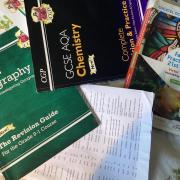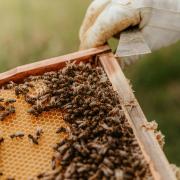
According to a 2017 government survey, at least 2 in 5 people surveyed who identify as a part of the LGBT community have experienced an incident, such as verbal harassment or physical violence, as a result of their sexuality. When asked to rate how satisfied they were with their life, LGBT people had an average rating of 6.5 out of 10 (compared to the general population average of 7.7), with transgender people having an average of just 5.4.
These statistics show there is a problem, but how do people who are part of the LGBT community feel, and what can be done to make things better?
This month was LGBT History Month, which is a month of observation and celebration of the LGBT+ (which stands for lesbian, gay, bisexual, transgender) community and their history. This year the theme is Peace, Activism and Reconciliation, with events being held across the country throughout the month.
Alexander Maynard (16) is a transgender man who has been out for almost two years. I asked him about his experience.
What was it like telling people close to you that you were trans?
‘It was very scary at first; you have no idea whether they are going to accept or disown you and I thought my friends and family would throw me away. Thankfully they didn’t- last Christmas all my cards from extended family had ‘Alex’ on them. Telling people is such a huge weight off the shoulders because you’re releasing this massive secret and you don’t have to hide anymore.’
As part of LGBT History Month, Alex, along with other members of the community, spoke about his experiences in assemblies at school.
What was it like coming out and talking in front of the whole school?
‘Terrifying, but strangely empowering. My biggest fear wasn’t actually blatant transphobia but being ignored and people still using the wrong name and pronouns. It would’ve been devastating to put my own safety and comfort at risk only to be disregarded and misgendered.'
How did people react? How did their reactions compare with what you expected?
‘Most people reacted well, but some people took a little longer to adjust. Nobody was really horrible (at least directly) and if they didn’t understand they just asked.'
Why do you think events like LGBT History Month are important, if they are important at all?
‘I think they are so important; for years we’ve been made to feel ashamed of things we can’t change which is why pride is a breath of fresh air and gives us the freedom to celebrate and be proud of who we are. I also think it’s vital younger members of the community know all about the people who have fought for us and our rights to equality.'
What do you think needs to change in society with regards to LGBT+ acceptance and so on? Or do you think everything is fine as it is?
'We’ve come a long way from where we used to be, but there’s still a way to go. It’s still illegal to be gay in many countries. In the UK, it’s nearly impossible to change your gender legally and medically transitioning is a very long and difficult process, so I feel like that system could be improved. Hate crimes are still being committed every day and a lot of the time perpetrators walk free afterwards. Overall, society needs to accept we can’t change these things and we didn’t choose to live this way.'
What do you think the ‘every day’ person can do?
‘The smallest thing can make a big difference, such as respecting people’s pronouns. Don’t ask us anything you wouldn’t ask someone that wasn’t trans and don’t stare at gay couples in public. Of course, we want people to support us and be an ally, but the best thing you can do on a daily basis is leave us alone. We’re ordinary people just like you and we want to live ordinary lives.’
What’s the most important message you want people to take away?
'Respect us is all we ask. We should be allowed to love ourselves for who we are and celebrate everything that makes us, us. I’m very proud of how far we’ve come as a community and although there are difficulties I’m going to have to overcome, I wouldn’t change who I am for the world.'
Although people have different experiences and views, one thing is clear: respect is vital. The statistics can be improved, provided there is respect despite differences.



























